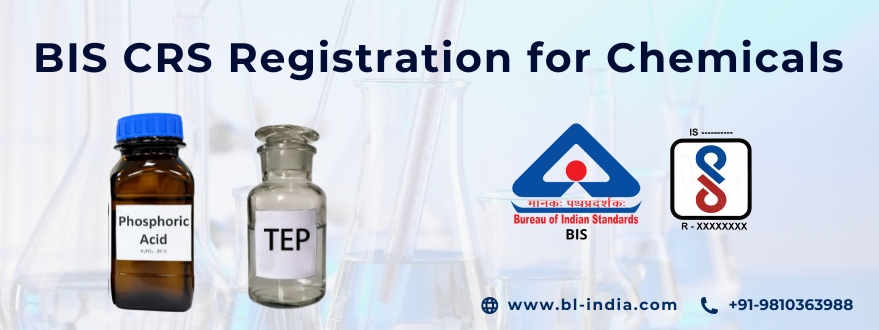
The chemical sector serves as a cornerstone for both industrial and agricultural progress in India. It contributes significantly to meeting basic requirements such as food and water security, housing, clothing, healthcare, information, communication and entertainment.
BIS certification is essential for chemicals to guarantee adherence to relevant Indian standards. All substances must comply with relevant standards and display the BIS standard mark under the license of the Bureau of Indian Standards.
The Bureau of Indian Standards (BIS) serves as India's national standards body. It operates under the authority of the Indian government and is responsible for developing and promoting technical standards across various industries.
In 2012, the Compulsory Registration Scheme (CRS) was introduced as a significant component under BIS. CRS mandates the certification of specific product categories, ensuring their adherence to predefined safety and quality standards. This scheme is a pivotal initiative aimed at safeguarding interests of consumers by regulating products that have the potential to impact safety and well-being.
As stipulated by the 2012 MeitY order, manufacturers are prohibited from manufacturing, distributing, storing for sale or importing goods that do not conform to the Indian Standards specified in the order and lack the standard mark accompanied by a unique BIS registration number.
BIS (Bureau of Indian Standards) registration for chemicals is crucial as it signifies compliance with specific quality and safety standards set by BIS. This registration is not only a legal requirement but also serves as a visible mark of assurance for consumers and businesses, instilling confidence in the quality of the chemical products. BIS registration is essential for market access in India, facilitating trade and contributing to international recognition. It helps mitigate risks associated with substandard or unsafe chemicals, ensuring both regulatory compliance and consumer safety. Additionally, manufacturers benefit from streamlined trade processes and improved market acceptance, supporting the overall integrity and competitiveness of the chemical industry in India.
There are three different types of chemicals covered under BIS registration, including:
The process for BIS Registration under the BIS CRS Scheme is outlined as follows:
Here is a list of essential documents necessary for BIS CRS Registration:
To sell their products into the Indian market, all chemical manufacturers must obtain a BIS license for their products from the Bureau of Indian Standards. Due to the multiple steps involved in the BIS registration process, it is advisable to seek the expertise of BIS consultants to navigate the certification process effectively.
As a prominent BIS consultant, Brand Liaison provides a comprehensive solution for all your compliance needs. Our experts in BIS certification are dedicated to guiding you through each stage, ensuring a seamless and timely completion of your BIS certification process.